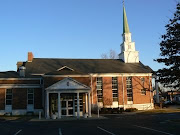Twice a month, 12-15 people gather at our house to learn how better to recognize and experience and follow the Holy Spirit. We call the group "Flowing in the Spirit." We met this past Sunday and I'd like to share a little of it with you.
The conversation was around the different ways in which different people most easily experience the presence of God. One of the books I’m reading is Sacred Pathways, by Gary Thomas, who also wrote Sacred Marriage (“What if God designed marriage to make us holy more than to make us happy?”). He points out that many people feel frustrated or even guilty because the ways in which they are advised to grow closer to God don’t seem to work for them. For instance, we are often told that to grow closer to God, we just need to lock ourselves away in our prayer closet for longer and longer periods of time each day. Thomas says this works great for some people, but not at all for others, and it’s not a problem with those others, it’s just that God made them differently.
This was illustrated by the group discussion. Among the ten or so people there (several were away, it being August), we identified at least five or six different main ways in which different ones of us connect with God.
After that discussion, I briefly outlined the nine ways Thomas has identified as how different people connect with God. Then we made a two-part assignment for next time, which will be Aug. 23. The assignment is:
• Try a new way of connecting with God. Pick one of the below that you haven’t done much or at all, and try it.
• Think about what “connecting with God” means to you. How do you know if you have connected with God? What are the signs? How can you tell which of the below works best for you – and what does that mean, “works best?”
Here are Thomas’ nine pathways, very briefly summarized. For a more detailed discussion see the book.
1. Naturalists: don’t need buildings, books or bands. Learn about God from watching nature, feel close to God by being in nature.
2. Sensates: experience and love God through their five senses. Want to be lost in the awe, beauty and splendor of God. In worship, they want their senses to be filled with sights, sounds, smells, feelings, tastes. Love intricate architecture, stained glass, classical music, formal language, even incense and the feel of kneeling or holy water.
3. Traditionalists: love God through ritual and symbol and sacraments. May have a very disciplined life of faith, they like structure, they may not like change to the way they do things in church.
4. Ascetics: love God in solitude and simplicity. They want nothing more than to be left alone with God in prayer, without pictures or music or liturgy to distract them. Their worship is primarily internal.
5. Activists: love and worship God through their actions. These actions are often confrontational, standing for God against evil and calling sinners to repentance. They may experience God most deeply as they lobby or picket or march for a cause. They see church as a place to recharge their batteries for the real worship which takes place out in the world.
6. Caregivers: love and worship God by taking care of other people, like Mother Teresa.
7. Enthusiasts: love and express God with mystery and celebration, clapping and shouting “Amen” and dancing. May feel they haven’t worshiped if they aren’t experiencing and feeling and being moved by God’s presence.
8. Contemplatives: love God through adoration. May often refer to God as their lover, and use images of a loving Father and Bridegroom. Focus is not on understanding or serving God, but loving God as purely and deeply as possible.
9. Intellectuals: love and worship God best when studying the Bible or grappling with theological concepts. They may feel closest to God when they first understand something new about him.
For most people, one or a combination of a few of these feel very natural and good, and some others don’t help at all. Others are more able to experience God in a variety of these ways. I personally feel that one way of measuring our spiritual growth is by our increasing ability to worship in different ways. It is good to try different ways just to see if one works for you that you never tried, but it is also important to recognize that none of these ways of approaching or worshiping God is more or less spiritual than any of the others. In other words, individuals or denominations that focus on social action in serving God are neither more nor less spiritual, by that fact, than those that focus on silent prayer or doctrinal understanding. Structured liturgical worship is not necessarily more or less spiritual than free-flowing charismatic worship. We need to encourage and support each other in all of these.
I'd love for anyone reading this blog to join us at our next gathering - just email me for details. But whether you can or not, I want to encourage you: if you just haven't seemed to be able to get the hang of connecting with God, try a new way. God for sure wants to connect with you!
About Me
- Pastor David
- I serve as pastor of Trinity United Methodist Church in Annapolis, MD. I'm married to beautiful Paula, mother of my 4 sons and one daughter. I was a systems engineer before entering ministry 29 years ago.



